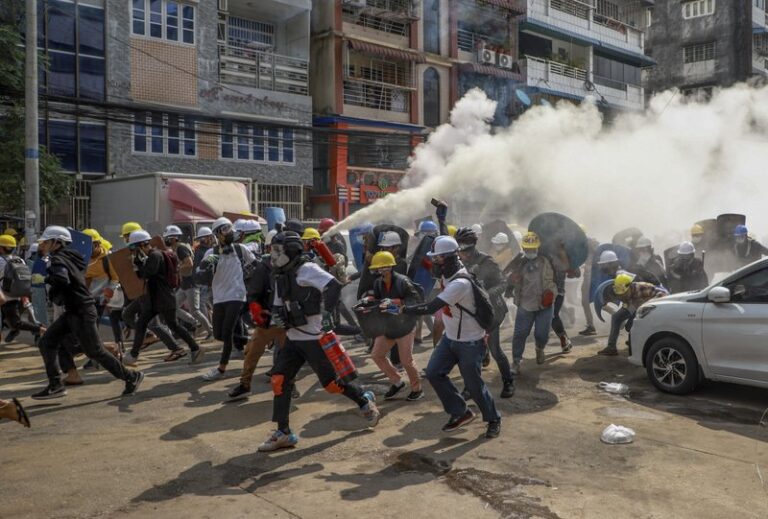
(AP) — The escalation of violence in Myanmar as authorities crack down on protests against the Feb. 1 coup is raising pressure for more sanctions against the junta, even as countries struggle over how to best sway military leaders inured to global condemnation.
The challenge is made doubly difficult by fears of harming ordinary citizens who were already suffering from an economic slump worsened by the pandemic but are braving risks of arrest and injury to voice outrage over the military takeover. Still, activists and experts say there are ways to ramp up pressure on the regime, especially by cutting off sources of funding and access to the tools of repression.
The U.N. special envoy on Friday urged the Security Council to act to quell junta violence that this week killed about 50 demonstrators and injured scores more.
“There is an urgency for collective action,” Christine Schraner Burgener told the meeting. “How much more can we allow the Myanmar military to get away with?”
Coordinated U.N. action is difficult, however, since permanent Security Council members China and Russia would almost certainly veto it. Myanmar’s neighbors, its biggest trading partners and sources of investment, are likewise reluctant to resort to sanctions.
Some piecemeal actions have already been taken. The U.S., Britain and Canada have tightened various restrictions on Myanmar’s army, their family members and other top leaders of the junta. The U.S. blocked an attempt by the military to access more than $1 billion in Myanmar central bank funds being held in the U.S., the State Department confirmed Friday.
But most economic interests of the military remain “largely unchallenged,” Thomas Andrews, the U.N. special rapporteur on the rights situation in Myanmar, said in a report issued last week. Some governments have halted aid and the World Bank said it suspended funding and was reviewing its programs.
Its unclear whether the sanctions imposed so far, although symbolically important, will have much ímpact. Schraner Burgener told U.N. correspondents that the army shrugged off a warning of possible “huge strong measures” against the coup with the reply that, “‘We are used to sanctions and we survived those sanctions in the past.’”
Andrews and other experts and human rights activists are calling for a ban on dealings with the many Myanmar companies associated with the military and an embargo on arms and technology, products and services that can be used by the authorities for surveillance and violence.






